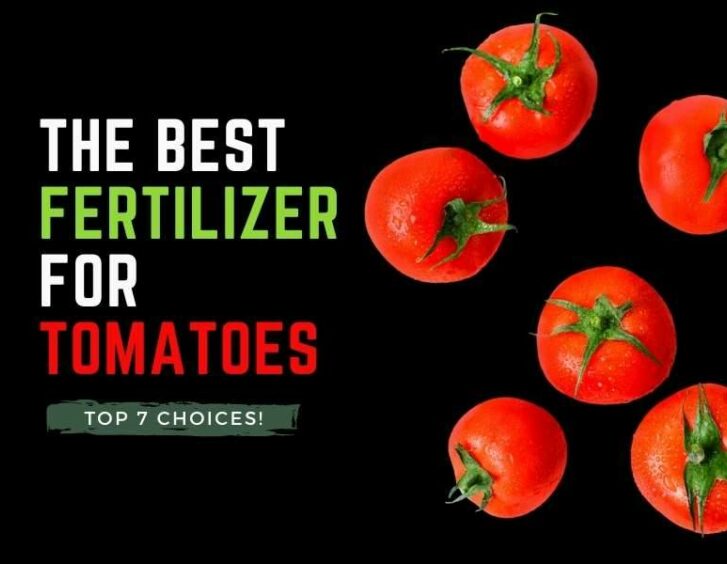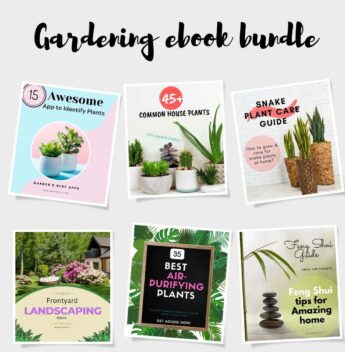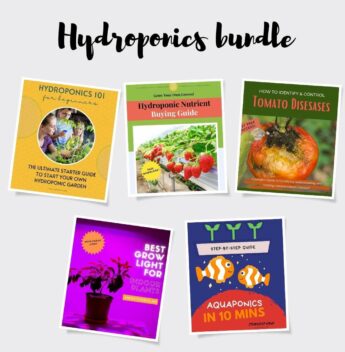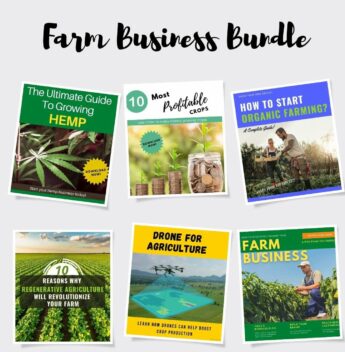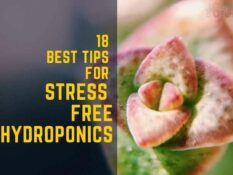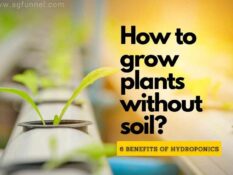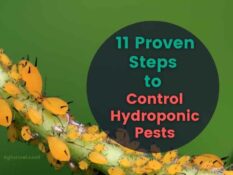Do you want to grow the best tomatoes in your backyard? Well, then you need to know which fertilizers are best for your tomato plants. There are so many different types of tomato fertilizer available and it can be challenging to determine the best fertilizer for tomatoes. To help make it easier for you, we have created a list of our top 6 best tomato fertilizer so that you can grow healthier and happier tomatoes.
Overview of the best tomato fertilizer
Best For Planting
Jobe's Organic Tomato Fertilizer
- NPK ratio: 2-5-3
- Granular
- OMRI Listed
- Contains Jobe Biozome
- Available Sizes: 1.5 lbs, 4 lbs and 16 lbs
- Feeds 4-6 weeks
Best For Growing
Miracle-Gro Shake' N Best Fertilizers For Tomatoes
- NPK ratio: 12-4-8
- Granular
- Consists Several Micronutrients
- Available Sizes: 1 lb, 4.5 lbs, and 8 lbs
- Feeds up to 3 months
Best For Fruiting
Miracle-Gro Plant Food, Tomato Fertilizer
- NPK ratio: 18-18-21
- Water Soluble
- Available Sizes: 1.5 lbs. and 3 lbs
- Water Soluble
- Instant Feed
- Feeds 1-2 weeks
Consider the following factors before purchasing tomato fertilizer. To begin with, you must select a tomato fertilizer appropriate for your plants. For example, if you have a fast-growing plant and wish to fruit faster, you should use a different set of fertilizers.
Things To Consider Before You Purchase Your Tomato Fertilizer
- Soil type,
- Soil fertility levels,
- pH levels,
- Whether or not the soil is organic or treated,
- Stage of plant growth
- If the plant is in a pot or on the ground
.
Knowing what type of soil your tomatoes are planted in is important. You should consider whether they are in (light sandy/clay soil) or if they require high levels of nitrogen and phosphorus (depending on whether they're fruiting tomato plants).
You'll also need to know what your soil's pH is. You can use a soil test kit to determine your soil pH. Tomato prefers a pH of 6.5-7.
You should also know how much (if any) organic matter is in the soil and whether or not it's high in magnesium.
For best tomato results, consider using the best fertilizer high in nitrogen (for lush green foliage growth) and the best organic fertilizer high in phosphorus (to encourage flowering).
One of the important things to should consider while buying tomato fertilizer is the soil composition where you plan to grow tomatoes. Before buying any fertilizer, always do a soil test, so it is easier to buy the specific fertilizer lacking in the soil.
Best Tomato Fertilizer Review
It can be challenging to determine which one is the best fertilizer for tomatoes. We've done the hard work by researching and testing these products, so we're happy to share them here in this article!
1. Jobe's Organic Tomato Fertilizer (Best For Planting)
Features:
- Fast-acting granular fertilizer with an organic formulation increases the growth and yield of tomatoes and other vegetables. Good to use for several vegetable plants such as tomatoes, cabbages, carrots, beets, lettuce, beans, potatoes, eggplants, cucumbers, pumpkins, onions, pumpkins, squash, garlic, peppers, etc.
- It features Jobe Biozome, a highly effective proprietary archaeon microorganism that promotes the fertilizer's fast action and helps improve overall plant health.
- OMRI listed and USDA organic certified.
- The Jobe's Biozome improves soil conditions; helps your garden resist disease, insects, and drought.
Pros:
- Safe for organic gardening
- It comes in easy pour bag
Cons:
- Unpleasant smell
- It may be harmful to pets, so it needs to be kept safe and out of reach of pets.
2. Miracle-Gro Shake N Feed Fertilizer (Best For Growing)
Features:
- It is all-purpose plant food and also helps to prevent wee.
- It consists of several micronutrients and natural ingredients to feed microbes in the soil.
- Calcium helps form strong cell walls, producing better quality and longer-lasting fruits and vegetables. Plus, it helps prevent disorders in edible crops commonly associated with calcium deficiency.
- Feeds up to 3 months
- It can be used both for in-ground and container growth of plants.
Pros:
- It helps prevent disorders in edible crops commonly associated with calcium deficiency.
- It contains natural ingredients to feed microbes in the soil, which helps to improve overall plant growth.
Cons:
- It has a low phosphorus content (12-4-8), so it gives better results when the plant is growing, but it is not ideal for tomato fruit production.
3. Miracle-Gro Plant Food, Best Fertilizers For Tomato Fertilizer (Best For Fruiting)
Features:
- Apply every 7-14 days
- 1.5 lbs. of this product feed approximately 600 sq. ft. when applied using the Miracle-Gro Garden Feeder.
- Great for tomatoes and all vegetables.
- No burn when used as directed.
- Available sizes are 1.5 lbs. and 3 lbs.
Pros:
- Water-soluble, so easy to apply. It can be used with Miracle-Gro Garden Feeder or any watering can
- Instant release fertilizer
Cons:
- You may need to cut down the dose on some tomato varieties, which cannot tolerate high nitrogen content.
4. Dr. Earth Best Fertilizer For Tomatoes
Features:
- It's a 4-6-3 fertilizer that creates healthy soil to produce the most nutritious tomatoes, vegetables, and herbs.
- It is an organic and OMRI-listed product.
- It contains probiotics, seven champion strains of beneficial soil microbes plus Ecto and endomycorrhizal, all of which contribute to drought tolerance, enhanced nutrient availability, and increased plant performance.
- Organic tomato fertilizer does not contain GMOs, chicken manure, or sewage sludge.
Pros:
- This fertilizer formula is OMRI-Certified, OIM-Certified, CCOF-Certified, NOP-Certified, and Non-GMO-Project-verified.
Cons:
- It has a strong fishy odor.
- Smells can attract predators to the plants.
5. Tomato Tone Organic Tomato Fertilizer
Features:
- Tomato tone complex blend of natural organics provides complete and balanced feeding of all 15 nutrients. It consists of 3-4-6-8-3 (Nitrogen, Phosphate, Potash, Calcium, Sulfur) derived from the hydrolyzed heather meal, pasteurized poultry manure, cocoa meal, bone meal, alfalfa meal, greensand, humates, Sulfate of Potash, and gypsum.
- Enhanced with thousands of living microbes and is approved for organic gardening.
- It is perfect for all tomatoes, helps prevent blossom end rot, and provides a safe, continuous, and complete balanced feeding.
Pros:
- Thousands of living microbes enable it to make your tomatoes plump, juicy, and ripe.
Cons:
- It has an undesirable odor
- It may be harmful to pets and animals, so it needs to be handled and stored carefully.
6. Neptune's Harvest Tomato & Veg Fertilizer
Features:
- It is a liquid fish fertilizer. Increases vigor and volume of tomatoes and vegetables.
- It can be applied to trees, shrubs, and flowers apart from vegetables.
- Helps plants in drought tolerance.
Pros:
- It improves stalks and supports strong roots
- Easy to dilute
Cons:
- Strong fishy smell
In conclusion, we all know that growing healthy tomato plants requires the proper nutrients. Still, it's hard to figure out which products will give you the desired results without wasting too much money on something that doesn't work.
We hope this article will help provide the necessary information so that when you buy your tomato fertilizer, you'll have the knowledge needed to make a great decision.
FAQs
How to apply fertilizer for tomatoes?
Before applying the tomato fertilizer, check the labels carefully to know how much of each ingredient is required per 100 square feet/square meter of tomato beds or containers. And then, read the directions on how to use the tomato fertilizer and during which stage of the plant growth.
How often do I need to reapply the fertilizer for tomatoes?
If your soil in the garden lacks the nutrients, you should fertilize the soil more frequently, starting when the tomato plants are first transplanted, in the required amount. Then, you can fertilize it once every few weeks, depending on whether the plant is actively growing or if they are fruiting.
Can Tomato Fertilizer also be used for Strawberries for a better yield?
Yes, tomato fertilizer can also be used for strawberries for a better yield. However, it's important to consider specific strawberry fertilizer options to ensure they're getting the right nutrients. Look for options that are high in potassium, as this is essential for fruit development in strawberries.
When will I get visible results after using a fertilizer?
Usually, the visible result of fertilizers in the plants depends upon the fertilizers you use. If you use instant-release chemical fertilizers, then the results come quickly. Whereas if you use organic tomato fertilizer or composted tomato food, the effects of fertilizer may take some time.
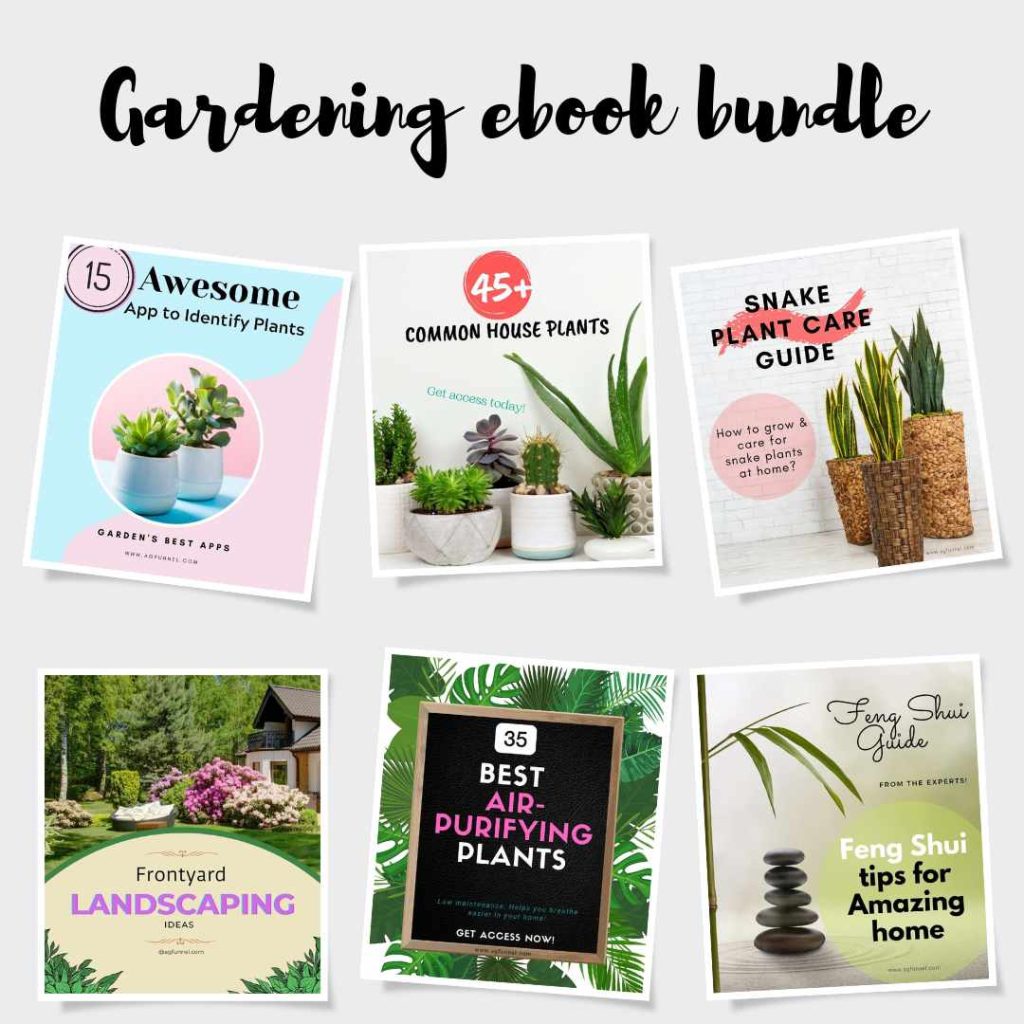
How to master gardening? Download these essential home and gardening ebooks today!


